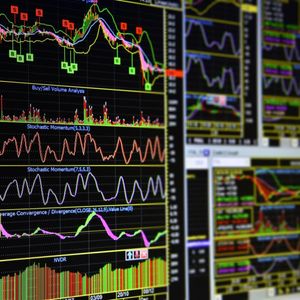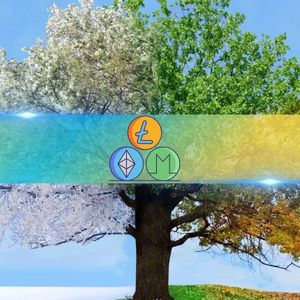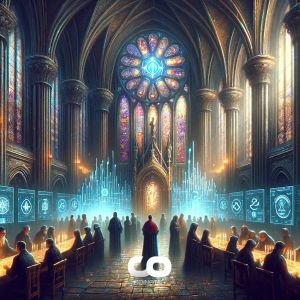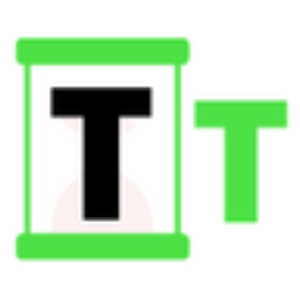Ondo Finance Discusses Crucial Tokenized Securities Framework with SEC
5 min read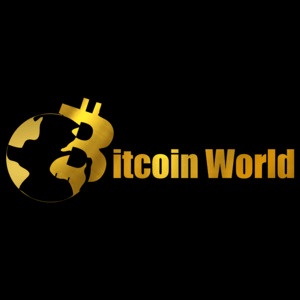
In a move signaling growing dialogue between the blockchain industry and regulatory bodies, Ondo Finance recently held a significant meeting with the U.S. SEC’s Crypto Asset Working Group. This discussion, which took place on April 24, focused on exploring potential regulatory pathways for issuing tokenized securities. For anyone tracking the intersection of traditional finance and blockchain, particularly in the burgeoning Real World Assets (RWA) space, this engagement is a crucial development. Why is Ondo Finance Meeting with the SEC About Tokenized Securities? Ondo Finance is a prominent player in the decentralized finance (DeFi) landscape, specifically known for its focus on bringing real-world assets onto the blockchain. They offer products that provide investors with exposure to assets like U.S. Treasuries and money market funds through tokenized formats. Given their business model revolves around tokenizing traditional financial instruments, engaging with the primary U.S. securities regulator, the SEC , is not just logical but essential for long-term viability and scalability. The meeting signifies Ondo’s proactive approach to navigating the complex regulatory environment surrounding digital assets. As the lines between traditional finance and crypto blur, clarity on how existing securities laws apply to tokenized securities becomes paramount. Ondo, by initiating this dialogue, is seeking to understand and potentially help shape the framework under which these assets can be legally and safely issued and traded in the U.S. Understanding the SEC’s Role in Crypto Regulation The U.S. Securities and Exchange Commission (SEC) is tasked with protecting investors, maintaining fair, orderly, and efficient markets, and facilitating capital formation. Under the long-standing Howey Test, many digital assets can be deemed securities if they represent an investment contract. The SEC, led by Chairman Gary Gensler, has consistently stated that many cryptocurrencies and related products likely fall under their jurisdiction. The creation of the SEC’s Crypto Asset Working Group itself highlights the regulator’s recognition of the need to develop expertise and engage with the rapidly evolving digital asset space. Their discussions with entities like Ondo Finance are part of a broader effort to understand the technology, assess risks, and determine how existing regulatory frameworks apply, or if new ones are needed, for products like tokenized securities . Deep Dive: What Was Discussed Regarding Tokenized Securities? The meeting between Ondo Finance, their legal counsel Davis Polk & Wardwell, and the SEC covered several critical areas. These points are fundamental to establishing a legitimate and compliant market for tokenized assets: Compliance Pathways: How can issuers of tokenized securities ensure they comply with existing securities laws? This includes aspects like disclosure requirements, anti-fraud provisions, and investor protection measures. Registration Requirements: Under U.S. law, securities generally need to be registered with the SEC unless an exemption applies. The discussion likely explored how this registration process would work for tokenized formats or if specific exemptions might be relevant or necessary. Broker-Dealer Rules: How should platforms or entities involved in the trading of tokenized securities be regulated? Do they need to register as broker-dealers? This is a significant point of contention and complexity in the digital asset space. Market Regulations: Discussions likely touched upon rules governing trading venues, clearing, and settlement for tokenized securities to ensure market integrity and efficiency, similar to traditional markets. These topics reveal the core regulatory hurdles that need to be addressed for Real World Assets to be widely tokenized and traded within the U.S. legal framework. It’s not just about the technology; it’s about fitting the technology into established legal and regulatory structures designed to protect investors and markets. The Promise and Challenges of Tokenized Real World Assets (RWA) The tokenization of Real World Assets is one of the most exciting narratives in the current crypto cycle. It involves issuing blockchain-based tokens that represent ownership or exposure to tangible or traditional financial assets like real estate, art, commodities, bonds, or private equity. Benefits of RWA Tokenization: Increased Liquidity: Tokenization can make illiquid assets (like real estate) more easily tradable. Fractional Ownership: Allows multiple investors to own a piece of a high-value asset. Enhanced Transparency: Transactions can be recorded on a public or permissioned blockchain. Greater Accessibility: Potentially lowers investment minimums and opens up global access. Streamlined Processes: Can reduce intermediaries and speed up settlement times. Challenges of RWA Tokenization: Regulatory Uncertainty: This is the biggest hurdle, as highlighted by the Ondo-SEC meeting. Legal Framework: Ensuring the token legally represents the underlying asset and that ownership rights are enforceable. Valuation and Oracles: Reliably pricing and updating the value of the underlying asset on-chain. Custody and Security: Securely managing both the digital token and the physical/traditional asset. Interoperability: Ensuring tokens can be easily moved and traded across different platforms and blockchains. Addressing the regulatory challenges, particularly with bodies like the SEC , is critical for the RWA sector to move from niche applications to mainstream adoption. Actionable Insights from the Ondo-SEC Dialogue What does this meeting mean for you, whether you’re an investor, a developer, or just interested in the space? Regulatory Engagement is Key: This meeting underscores that legitimate projects are actively engaging with regulators. This is a positive sign for the long-term maturation of the industry. Focus on Compliance: Any project dealing with assets that could be considered securities must prioritize legal and regulatory compliance from the outset. Watch for Frameworks: Keep an eye on future announcements or guidance from the SEC and other regulatory bodies regarding tokenized securities and Crypto Regulation . These will shape the market significantly. Due Diligence on RWA Projects: If investing in RWA projects, scrutinize their approach to regulation, legal structure, and how the underlying assets are managed. While this single meeting doesn’t provide all the answers, it’s a clear indication that the conversation about how to integrate blockchain technology with traditional finance, particularly through tokenized securities , is advancing at the highest levels of regulation. Summary: A Step Forward for Tokenized Securities and RWA Ondo Finance’s meeting with the SEC’s Crypto Asset Working Group on April 24th represents a significant step in the ongoing dialogue between the crypto industry and U.S. regulators. By discussing crucial aspects like compliance, registration, and trading rules for tokenized securities , Ondo is helping to pave a potential path for the regulated growth of the Real World Assets sector on the blockchain. While significant challenges in Crypto Regulation remain, proactive engagement like this is essential for building the necessary frameworks to unlock the full potential of tokenization and bridge the gap between traditional finance and the digital asset world. This interaction highlights the increasing importance regulators are placing on understanding and addressing the complexities of digital assets that represent traditional securities. To learn more about the latest Crypto Regulation trends and Real World Assets developments, explore our article on key developments shaping tokenized securities institutional adoption.

Source: Bitcoin World
